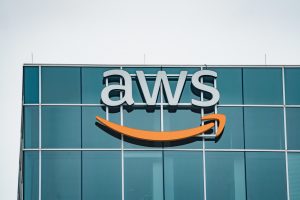Mobile Wallet, NFC Trends Only Encourage Malware Attacks: Report
![]() Digital security is important, and as we become more mobile with everything we do in our lives, mobile security is an integral part. With the meteoric rise in stored payment options, and NFC coming on the horizon, many companies and security experts alike are becoming more aware of the malware attacks that are happening with increasing regularity on mobile users. The Lookout Mobile Threat summary, released today, outlines the most pressing issues. This is significant because as more people move to mobile payments and personalized apps, security needs to be at its best to protect people from fraud and harmful viruses.
Digital security is important, and as we become more mobile with everything we do in our lives, mobile security is an integral part. With the meteoric rise in stored payment options, and NFC coming on the horizon, many companies and security experts alike are becoming more aware of the malware attacks that are happening with increasing regularity on mobile users. The Lookout Mobile Threat summary, released today, outlines the most pressing issues. This is significant because as more people move to mobile payments and personalized apps, security needs to be at its best to protect people from fraud and harmful viruses.
The amount of malware threats have increased exponentially over the past year, going from hundreds of threats a day to thousands. The danger of malicious attacks on your smart phone are real–you have to be prepared for it. Lookout notes that one contributing factor in the rise of malware is the sophistication of attack methods. Android malware instances have more than doubled in the past 6 months, with 3 out of 10 Android users likely to be affected by web-based malware links. An estimated half million to one million people were affected by Android malware in the first half of the year, with infected Android apps jumping from 80 in January to over 400 in June 2011.
New, smarter attacks go after personal data & money
There are many different types of attacks that exist, and the different ways they are distributed the mobile arena is our point of focus. All of these have to do with application-based and web-based malware, in their threat report, Lookout outlines a few of them as follows :
- Android and Alternative markets – uploading the bad applications to Android Market and alternative app markets
- Malvertising – buying mobile ads that direct users to malicious website that triggers an automatic download of malware
- Upgrade Attack – bundling malware into an application update.
- We have also seen that games, utilities, and porn applications are the types of applications most often bundled with malware.
How to protect yourself
![]() With the rising concern over mobile security, we asked Lookout CTO and co-founder Kevin Mahaffey what consumers can do to protect themselves.
With the rising concern over mobile security, we asked Lookout CTO and co-founder Kevin Mahaffey what consumers can do to protect themselves.
“Consumers can protect themselves by being cautious when clicking links within emails, SMS or social networking sites that ask for personal information,” he says. “We also recommend that user’s download a security app and always take time to read the reviews before downloading any new applications. Make sure they read the permissions to make sure they make sense!”
These are things to look out for, and through their report Lookout highlights the different things that the consumer can do to keep their information safe. Each of theses has a varying level of danger because they can be packaged with legitimate apps or channels that people trust, so it does create an issue because the average consumer wont know which is safe and which is not.
Mobile wallet, NFC trends only encourage hackers and malware makers
![]() Just to give a bit of perspective as to how digital security has a real financial cost if not taken seriously, the amount of mobile payments should rise to $630 billion by 2014, up from $170 in 2010. That is a huge jump in revenue, and these scams, even if taking a very small piece of that, can become very lucrative. So looking forward, how will this affect mobile wallt trends in particular?
Just to give a bit of perspective as to how digital security has a real financial cost if not taken seriously, the amount of mobile payments should rise to $630 billion by 2014, up from $170 in 2010. That is a huge jump in revenue, and these scams, even if taking a very small piece of that, can become very lucrative. So looking forward, how will this affect mobile wallt trends in particular?
“As mobile devices grow in popularity, so do the incentives for attackers, and we expect the emergence of mobile payments will be another key driver of mobile threats,”Mahaffey notes. “At this stage malware writers are still experimenting, but in time we anticipate the threats to be more targeted and sophisticated.”
Most of what’s outlined here is par for the course in terms of what the consumer can do to protect themselves, but this is still important because many falsely feel safe because they think their cell phone is not as vulnerable as their computer. This does, however, set up for more potential attacks in the future because a lot of these malware creators are gearing up for when things like NFC payments and stored value go mainstream. According to Lookout’s report:
“Mobile devices are the fastest growing consumer technology, with worldwide unit sales expected to increase from 300 million in 2010, to 650 million in 2012.1 Mobile applications are likewise booming. In June 2011, for the first time ever people on average spent more time using mobile applications (81 minutes) than browsing the mobile web (74 minutes).”
Protecting in the background leveraging big data
![]() Malware in mobile platforms is becoming a bigger problem everyday, and companies like Lookout Mobile security are one of the many on the front lines. Through their partnerships with companies like Verizon, many of the things they do will go passively on in the background while the average consumer uses their phone just as they always do. The trends are pointing towards more pointed attacks against smartphone users, and through Lookout’s research using big data analysis to predict trends and see where things are going, in some instances they are able to predict correctly when and where an attack will pop up.
Malware in mobile platforms is becoming a bigger problem everyday, and companies like Lookout Mobile security are one of the many on the front lines. Through their partnerships with companies like Verizon, many of the things they do will go passively on in the background while the average consumer uses their phone just as they always do. The trends are pointing towards more pointed attacks against smartphone users, and through Lookout’s research using big data analysis to predict trends and see where things are going, in some instances they are able to predict correctly when and where an attack will pop up.
This better enables Lookout on how to protect the consumer, and that will give piece of mind and monetary savings to the end user, whether its an 18 year-old college student or a 100 year-old banking institution. People are doing more than ever on their phones on a regular basis, and this report is a gauge to show that the danger is real and spreading. Being proactive in terms of security will be the only thing that can stop major losses on a mobile network.
A message from John Furrier, co-founder of SiliconANGLE:
Your vote of support is important to us and it helps us keep the content FREE.
One click below supports our mission to provide free, deep, and relevant content.
Join our community on YouTube
Join the community that includes more than 15,000 #CubeAlumni experts, including Amazon.com CEO Andy Jassy, Dell Technologies founder and CEO Michael Dell, Intel CEO Pat Gelsinger, and many more luminaries and experts.
THANK YOU









